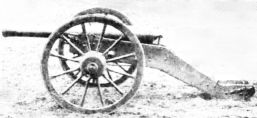New Boston Historical Society
New Boston, New Hampshire
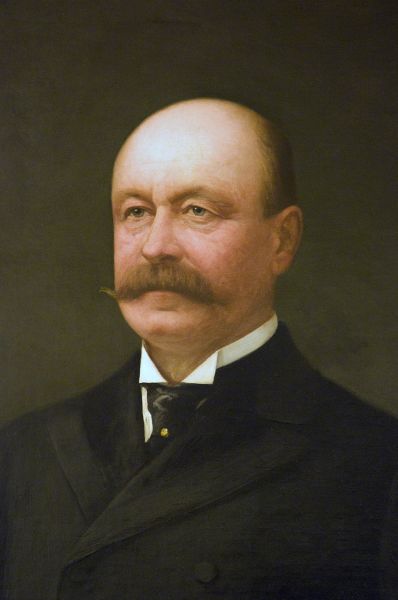
Undated photo of J. Reed Whipple donated by Ruth Saltmarsh
Joseph Reed Whipple
Joseph Reed Whipple (1842-1912) was a New Boston man who owned hotels in Boston, Massachusetts including the Parker House, Young's Hotel, and the Hotel Touraine. He was described in the New York Times as "one of the best known hotel men in America."J. Reed Whipple never forgot his home town. He established the Valley View Farm in New Boston to supply his Boston hotels, helped rebuild New Boston village after the Fire of 1887, created New Boston's first public library, and brought the railroad to New Boston.
J. Reed Whipple was born September 8, 1842 in New Boston, New Hampshire to John and Philantha (Reed) Whipple. He was educated in New Boston schools until he was eighteen, when he went to Boston to open a grocery store with his brother James B. Whipple. After the Whipple brothers' store failed J. Reed Whipple worked in a Boston restaurant and became interested in the hotel business.
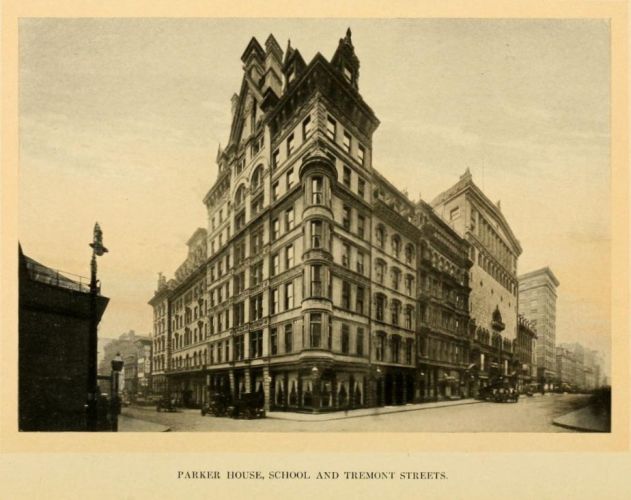
The Parker House in Boston in 1910

Facial hair was fashionable for men in the 1800s — think of photos from the Civil War era — but towards the end of the century people began to wonder if beards and mustaches might be unsanitary. In 1892 Whipple ordered all the waiters in his two hotels to remove their beards, an edict which was widely reported in the nation's press. An editorial in the Pittsburgh Dispatch encouraged the waiters to strike before submitting to "such a manifestation of sumptuary despotism. The beard of the juggler with hotel crockery is as dear to him as the hirsute magnificence of any other man." A delegation from the Boston Waiters Alliance informed Whipple that no one would comply with his order, which he rescinded after some deliberation.
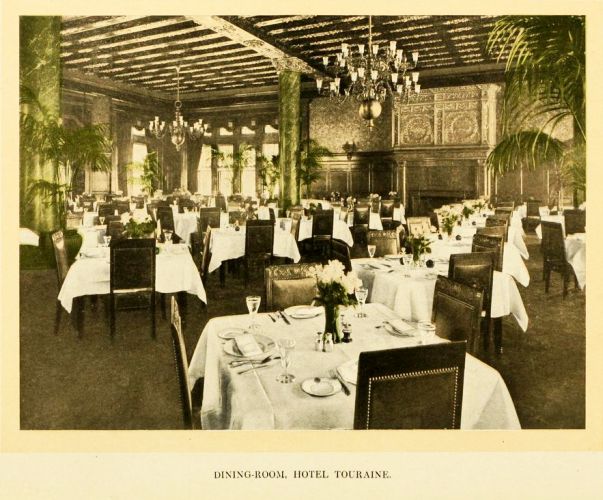
Dining room of the Hotel Touraine
When the New Boston town center burned in May 1887, Whipple provided financial assistance to people who had lost their homes and businesses, donated half the cost of rebuilding the town hall and the school, and built a new general store. The following year Whipple established New Boston's first public library in one corner of the general store and donated 2,000 books. Over a century later our town's library is still called the Whipple Free Library.
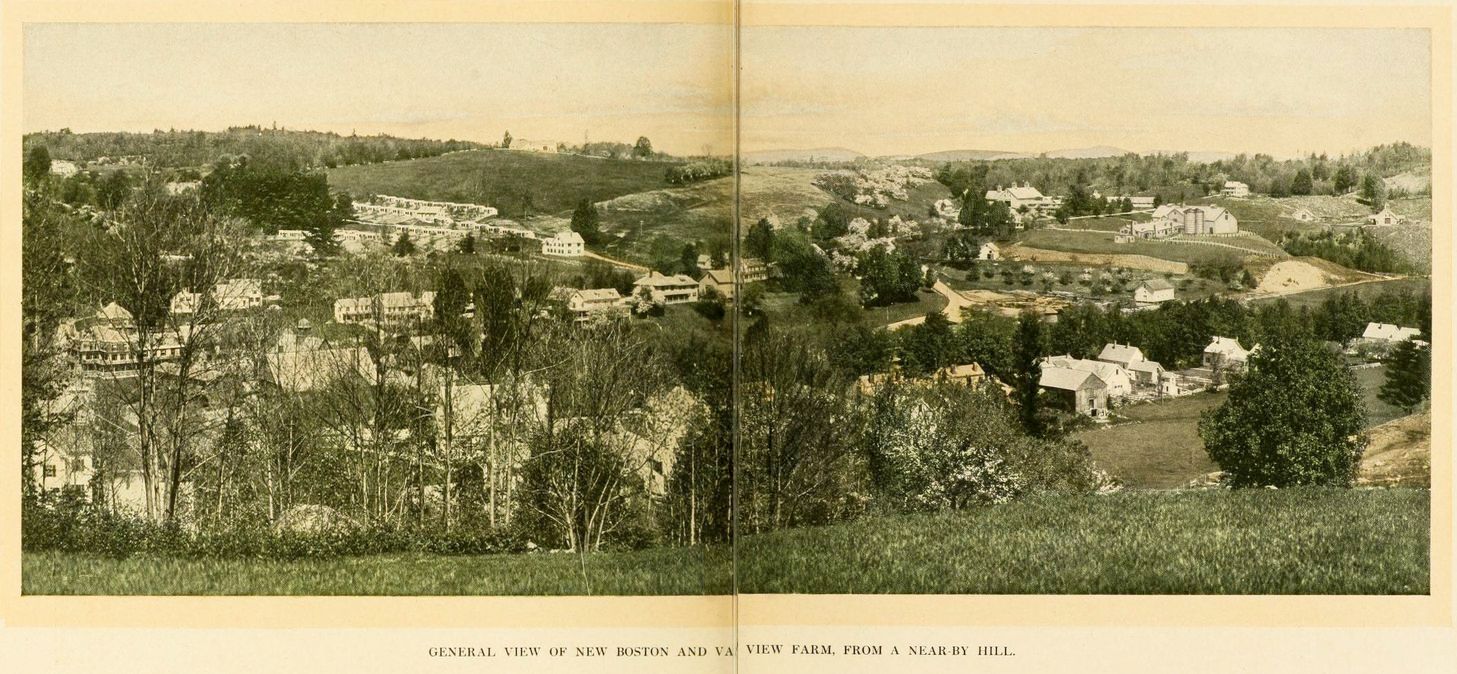
The Valley View Farm in New Boston included a piggery (far right), Whipple's house and barns (center right) and henneries (cemter left).
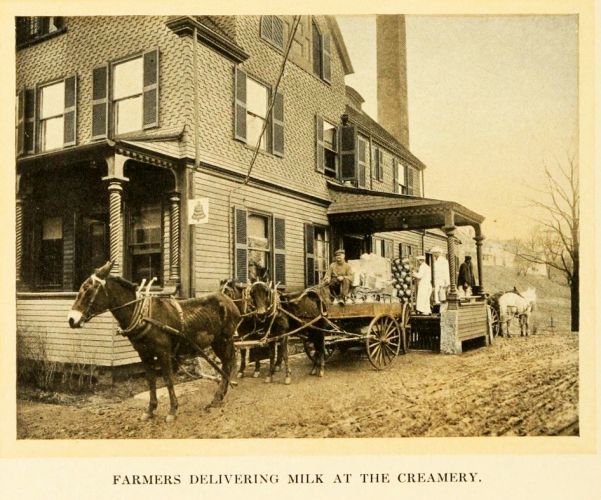
Local farmers brought their milk to Whipple's Creamery where it was processed by Swedish milkmaids.
In 1897 Whipple built "Boston's finest hotel," the Touraine, at a cost of $3,000,000. At the time of his death he had plans for yet another new hotel at the corner of Newbury and Arlington Streets in Boston.
Guests at Whipple's three hotels could read about the Valley View Farm in a book Whipple published in 1910, About The Farm, from which some of the photos on this page were copied.
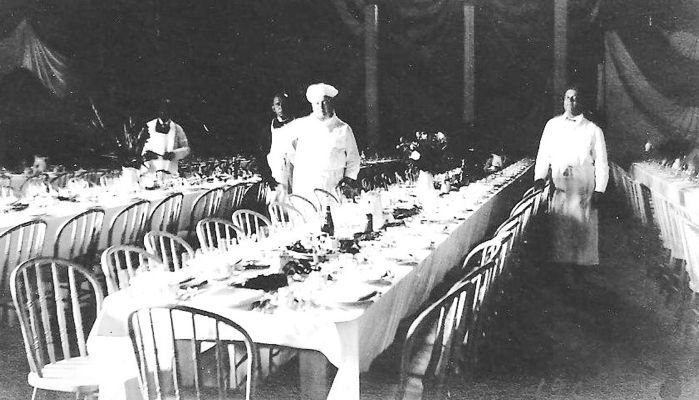
The banquet in the barn
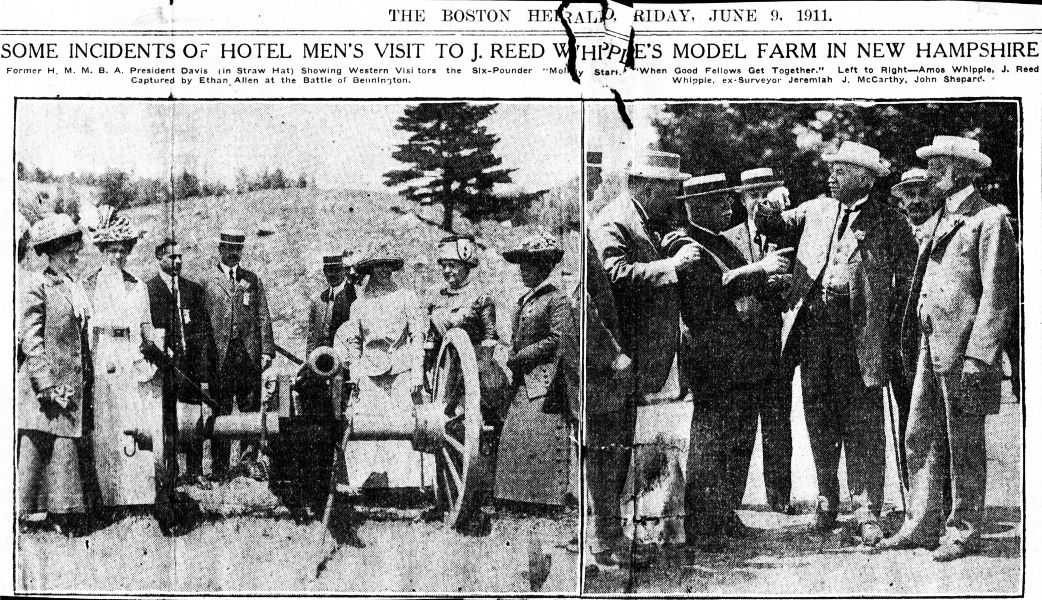
from the Boston Herald, June 1911
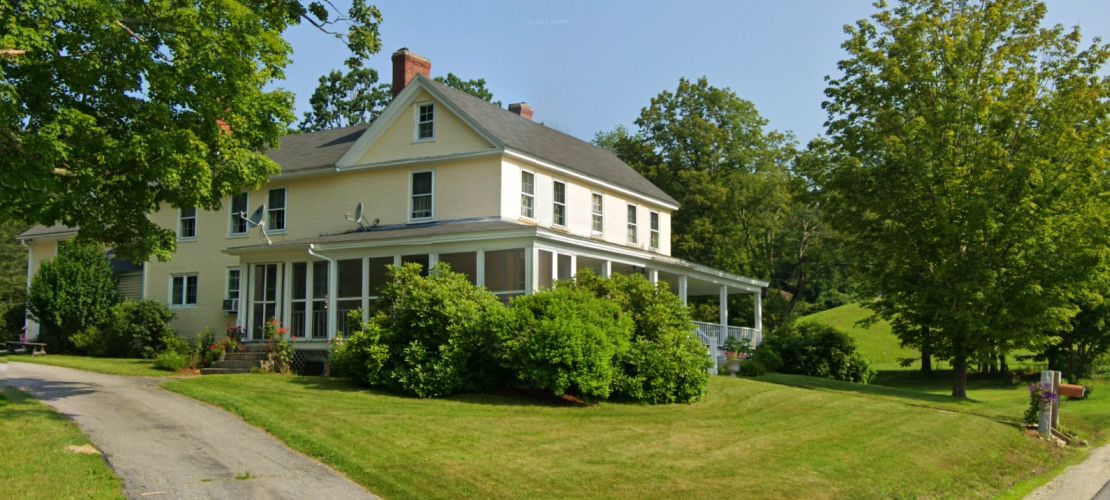
Whipple's New Boston house at the intersection of the Francestown and Weare roads is across the street from the 1909 Guernsey barn.
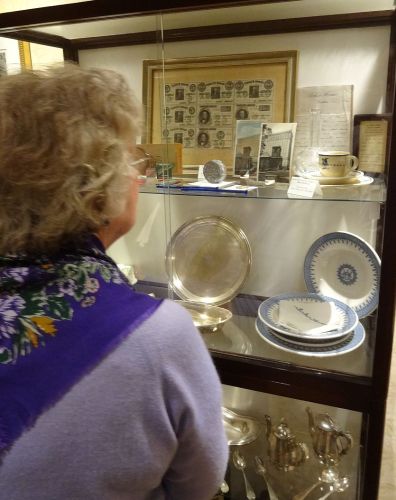
Nonah Poole visits the Omni Parker House historical exhibit in 2014.
